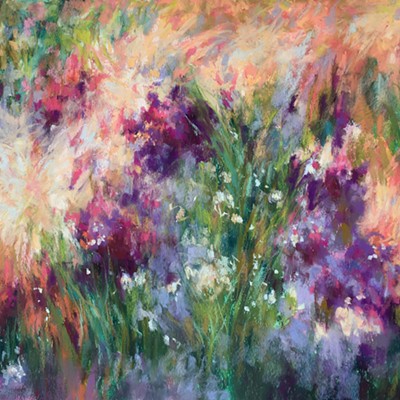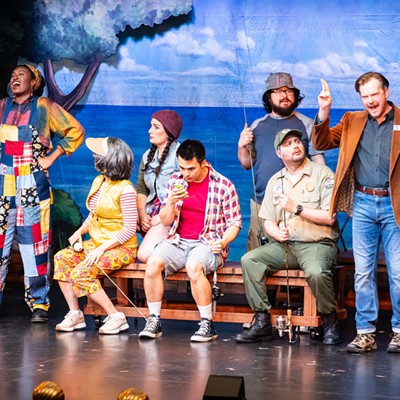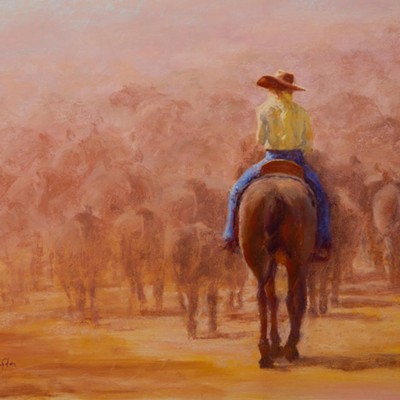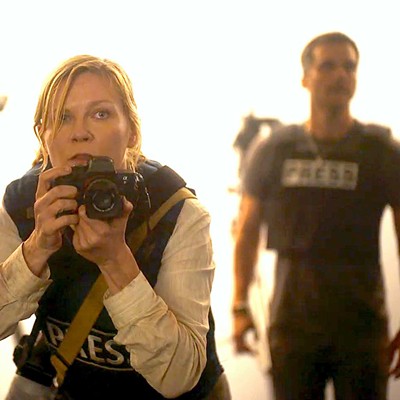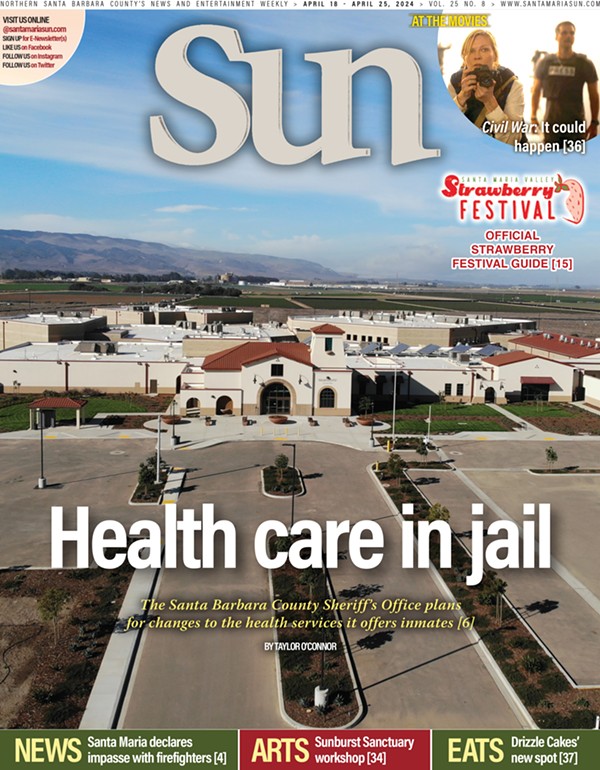"Intrigued by the intersection of faith and nature," is how poet Paul Willis describes himself on his website. A cursory glance at his body of work reveals it's an apt label.
"[Poetry] is always there as a way for people to connect with themselves and one another," Willis said. "And to connect to the world beyond them, and to the spiritual world."
Willis and Garland Thompson Jr., an actor, playwright, and performance poet based out of Monterey, are set to take the stage at CORE Winery in Orcutt for a reading on Sept. 8, part of the winery's ongoing Second Saturday poetry readings. Thompson was the poet laureate of Monterey in 2008, and currently serves as president of the Monterey County Film Commission's board of directors. His reading will include a selection from his book Garland at Eighteen.
Willis is a former poet laureate of Santa Barbara who currently serves as a professor of English at Westmont College. California born and raised, Willis' work addresses a profound connection between his personal faith and his deep love of the natural world. Both he and his wife are avid hikers, frequenting trails in the Sierra Nevada and Yosemite National Park, where they met.
He has published several books of poetry including Visiting Home, Say This Prayer Into the Past, Rosing From the Dead, and Getting to Gardisky Lake. Willis' work has appeared in numerous publications, including the 1996 edition of Best American Poetry, Poetry magazine, and Christian Century. He has been nominated for a Pushcart Prize four times.

But the path to poetry wasn't always a straight line for the scholar.
"I was writing eco-fantasy novels," Willis said. "I got a Ph.D. on how [William] Shakespeare used forests in his plays. And I went to my first teaching job in New York, 33 years ago now, trying to figure out if I was going to be a scholar or a creative writer or something else."
He quickly made friends with other professors who were themselves poets and was intrigued by their work. Willis started working on poetry while he was writing novels of his own, which led him to some revelations about the medium.
"I think poetry is an art of compression in some ways," he said. "Novel writing is act of extension. I would be writing a scene for a novel and I'd find a good image or metaphor and say, 'Good, the scene is over.' That's good for a novel but not so good for a poem."
So Willis transitioned to poetry, a format ripe for isolating the solitary moments one finds when exploring hiking trails and parks, as Willis and his wife are so fond of doing. Poems spring from simple ideas such as a word or a feeling that might pop into his head. His last book of poems was written while he was the artist in residence at North Cascades National Park in Washington.
"I spent a lot of time hiking," he said. "When you're alone, you have the freedom to just stop and really take a good look at a tree or flower and see what comes to mind. It's very similar to plein air painting that artists do."
Willis lists his influences as William Shakespeare, William Wordsworth, and William Stafford, who once lived and worked at the former Los Prietos Civilian Public Service Camp in Los Padres National Forest. Willis holds a yearly reading of Stafford's poems on the site where Stafford, a noted pacifist, served as a conscientious objector during World War I.
"I admire Shakespeare for his versatility," Willis said. "Especially the way he can mix the serious and the comic so easily and adeptly ... Wordsworth for his attention to nature obviously but also for his attention to people. He is really a poet of encounter and often pays attention to overlooked people in his work."
Willis' poetry often elicits a sense of calm surrender in the wake of natural splendor. In his piece "Sierra Says," Willis allows himself to disappear into his immense surroundings, weaving an intricate story of life beyond man's existence. "Meadow says, shooting star/Snow says, suncup/Granite says, old bones," one stanza reads. In these messages, Willis conveys a connection between the human and non-human, interweaving both worlds as one experience to the casual reader.
The professor's poetic work is evocative but not reactionary, marked by a keen ability to put a reader immediately in a scene plucked right out of the author's memory or imagination. Willis, however, doesn't necessarily consider himself a "nature" poet, although it's a subject matter that never stops inspiring him.
"People who know me tag me as a nature poet," he said. "But I come back and say, 'What else is there to write about, really?'"
Arts and Lifestyle Writer Rebecca Rose keeps it all natural. Contact her at [email protected].



